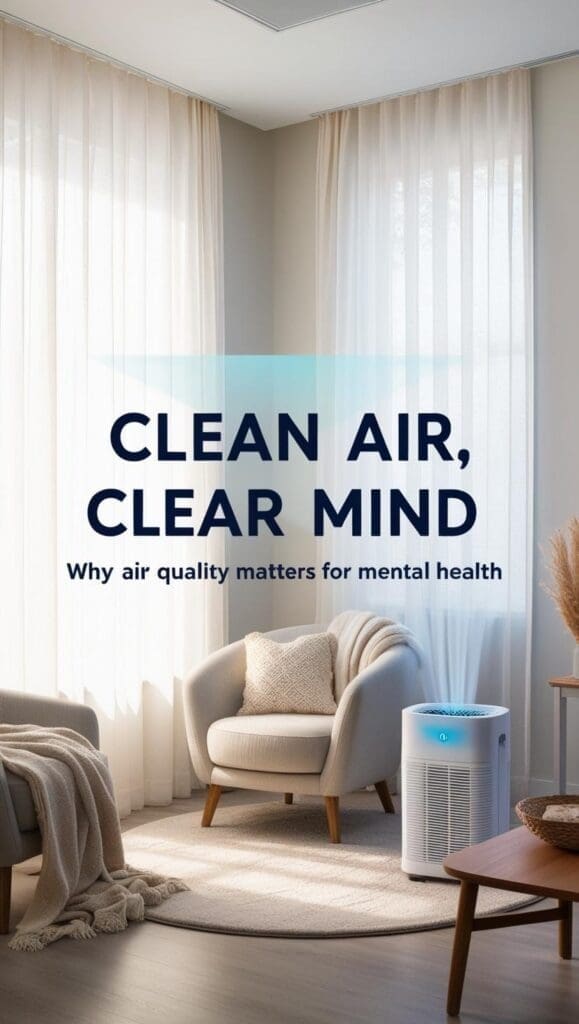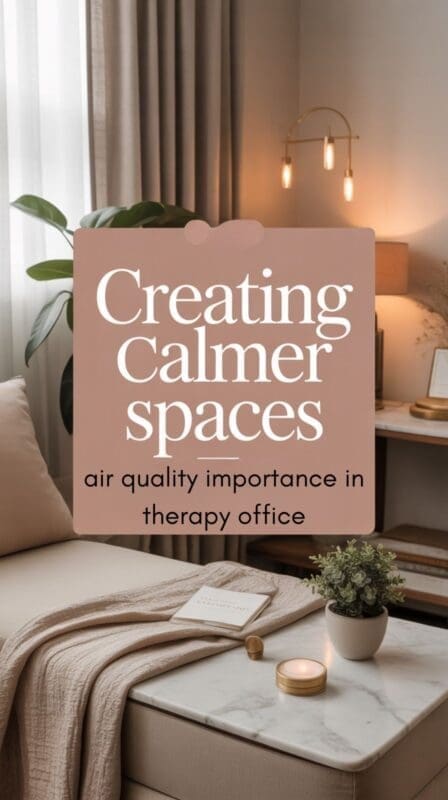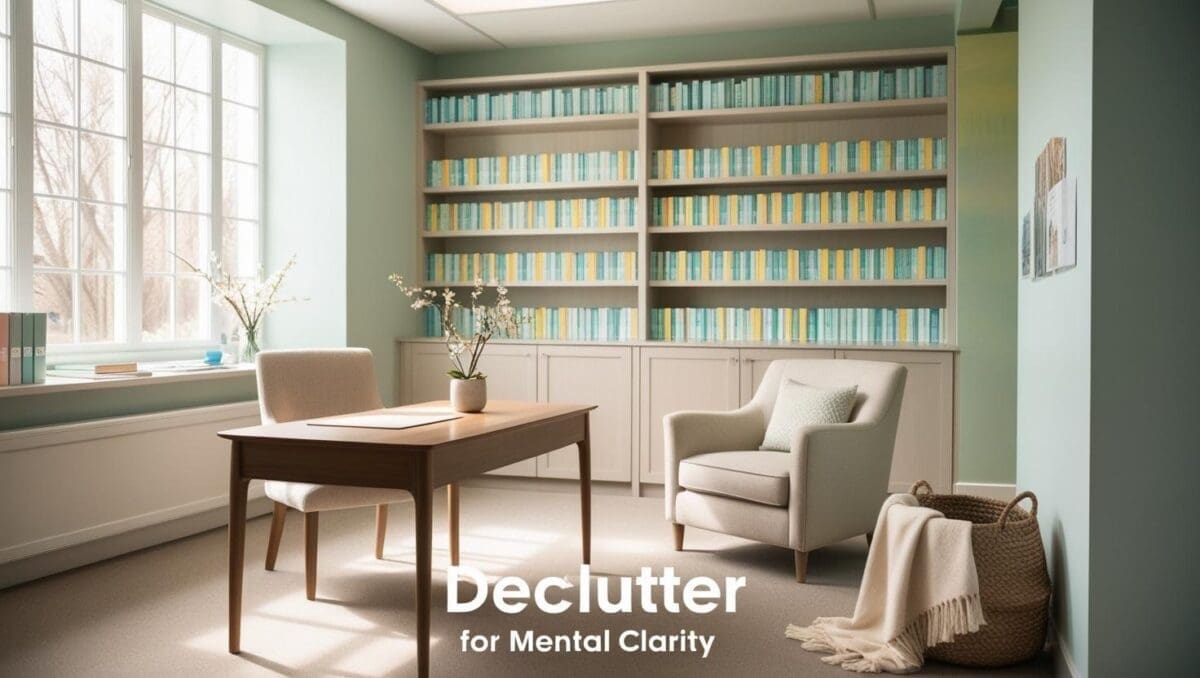In today’s fast-paced world, the quality of the air we breathe plays a crucial role in our overall health and well-being. For therapists and counselors, maintaining an environment that supports mental clarity and emotional balance is essential—not only for themselves but also for their clients. One often overlooked yet highly effective solution to enhancing the therapeutic space is the installation of high-quality air filters.
This post may contain affiliate links, which means I may earn a small commission if you make a purchase through these links — at no extra cost to you. I only recommend products I truly believe in and think will genuinely benefit therapists and mental health professionals.
The Importance of Air Quality in Therapy Settings
Therapy and counseling sessions are intimate and emotionally charged, relying heavily on non-verbal cues and a calm, supportive atmosphere. However, many office environments struggle with air quality due to several factors:
- Indoor pollutants: Dust, mold, volatile organic compounds (VOCs), and allergens can accumulate in enclosed spaces.
- High occupancy: With frequent visits from clients, each carrying their own set of microbes and particulates, indoor air can become compromised quickly.
- Urban pollution: Offices located in urban areas might be more susceptible to outdoor pollutants infiltrating indoor spaces.
Air Quality by the Numbers
Statistics and research underscore the need to optimize indoor air quality:
- The EPA has reported that indoor air can be 2-5 times more polluted than outdoor air, and in some cases, up to 100 times more, depending on various factors such as ventilation and occupancy.
- A study published in the Journal of Exposure Science & Environmental Epidemiology found that exposure to fine particulate matter (PM2.5) is linked to increased risks of cardiovascular and respiratory diseases, which can also indirectly affect mental health.
- Research from the World Health Organization (WHO) has emphasized that prolonged exposure to poor air quality can lead to cognitive impairments and mood disorders—a critical consideration in environments meant to foster psychological healing and well-being.
Why Air Filters Matter in a Therapy Office
- Health Benefits for Clients and Practitioners:
Clean air is essential for preventing respiratory issues and allergies, which can disrupt the flow of a session. For clients who may already be experiencing heightened anxiety or stress, the physical discomfort from poor air quality can exacerbate their conditions. - Creating a Calmer Environment:
Removing particulates and allergens contributes to a cleaner, more tranquil space, which can help reduce physiological stress responses. This allows both therapists and clients to focus better on the therapeutic process without distractions from environmental discomfort. - Enhancing Cognitive Function:
Studies suggest that improved air quality correlates with enhanced concentration and cognitive function. For therapists and counselors who rely on clear, focused thinking, this can be an invaluable benefit in maintaining effective practice.
Tips for Finding High-Quality Air Filtration Gadgets
With a growing market of air purifiers, selecting the right gadget for your therapy office can seem daunting. Here are some practical tips:
- Look for HEPA Filters:
Ensure that the air purifier uses a HEPA (High Efficiency Particulate Air) filter, which is capable of trapping particles as small as 0.3 microns with high efficiency. - Assess CADR Ratings:
The Clean Air Delivery Rate (CADR) is an important metric. It indicates the volume of filtered air delivered by the device, so choose a unit with a CADR rating appropriate for the size of your office space. - Noise Levels Matter:
Therapy sessions require a quiet environment. Check the noise ratings of the device—many high-quality air purifiers are designed to operate quietly, especially on lower settings. - Energy Efficiency:
Since air purifiers may run continuously during office hours, look for models that are energy-efficient to avoid high operational costs. - Read Reviews and Seek Recommendations:
Explore reviews from reputable sources and consider recommendations from professionals who have successfully integrated these devices into their practices. - Warranty and Customer Support:
Invest in brands that offer robust warranty options and responsive customer support, ensuring that any issues that arise can be addressed promptly.
Why the Levoit PlasmaPro 300S Is Perfect for a Therapist’s Office
When designing a calming, healthy counseling space, the air you breathe matters just as much as the furniture or paint color. The Levoit PlasmaPro 300S air purifier brings together clean-air power, smart technology, and a sleek, office-friendly design — making it a strong contender for therapy rooms of all sizes.
Here’s why therapists love it:
✅ Quiet and Distraction-Free
In therapy, silence and comfort are sacred. This purifier runs as quietly as a whisper on low mode (just 24 decibels!), so it won’t interrupt sensitive conversations or grounding exercises. Even on auto mode, it’s designed to blend into the background.
✅ True HEPA + PlasmaPro™ for Deep Air Cleaning
It goes beyond standard HEPA filtration by adding PlasmaPro™ ionization, which helps neutralize airborne bacteria, viruses, and odors — perfect for shared spaces where clients come and go throughout the day. Bonus: It’s ozone-free and CARB certified, so it’s safe to use all day long.
✅ Stylish Enough for a Cozy Office
The minimalist white-and-black design works well in elegant, soft-toned offices. It’s compact enough to tuck into a corner, but still large enough to clean up to 547 square feet — great for therapy rooms or even small waiting areas.
✅ Smart Features for Busy Therapists
With the VeSync app, you can control the purifier remotely, schedule when it runs, and monitor real-time air quality. This is a major plus if you’re balancing multiple sessions or stepping out between clients. It even adjusts itself automatically to purify more when air quality drops.
✅ Safe for Sensitive Clients
Whether your clients struggle with allergies, asthma, trauma-related sensitivities, or chemical sensitivities, the PlasmaPro 300S helps keep your space breathable and gentle. It filters out pet dander, dust, VOCs, and even subtle odors from cleaning products or candles.
Conclusion
For therapists and counselors, every aspect of the therapeutic environment contributes to the overall success of their work. Clean, well-filtered air is more than just a matter of physical health—it supports the mental and emotional well-being of everyone in the room. By investing in a high-quality air filtration system, practitioners can create a more inviting, safe, and effective space for healing and growth. Remember, small changes in your office environment can make a big difference in the lives of your clients.
Taking the time to research and invest in a reliable air filter can lead to improved health outcomes, a more serene therapy space, and ultimately, more effective sessions for both therapists and clients.

About the Author
Hi, I’m Eve, a former school counselor with a master’s degree in School Psychology and a passionate advocate for children and families navigating sensory challenges. As a mom of children with sensory sensitivities, I deeply understand the journey special-needs parents face, and I dedicate myself to researching and sharing practical solutions to help children thrive and feel comfortable in their bodies. My goal is also to empower counselors, therapists, and psychologists with creative strategies and supportive resources to enrich their everyday practice. When I’m not writing or exploring new therapeutic approaches, you’ll find me spending quality time with my family and continually seeking inspiration from everyday moments.




